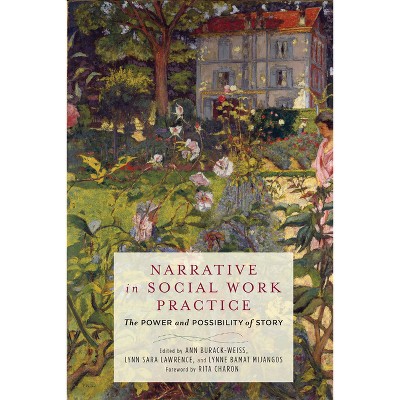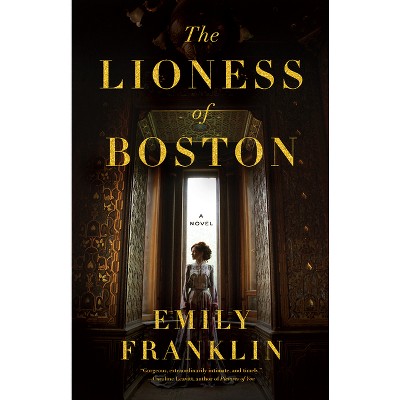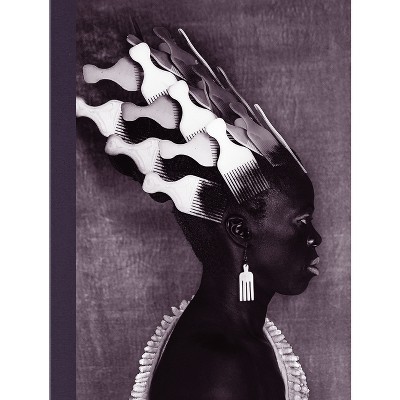Sponsored

The Lioness in Winter - by Ann Burack-Weiss
In Stock
Sponsored
About this item
Highlights
- When she started working with the aged more than forty years ago, Ann Burack-Weiss began storing the knowledge and skills she thought would help when she got old herself.
- About the Author: Ann Burack-Weiss is a social work practitioner, educator, and consultant who taught two generations of students at the Columbia School of Social Work and is now an associate faculty member in Columbia's Program of Narrative Medicine.
- 208 Pages
- Social Science, Gerontology
Description
About the Book
A gerontological social worker--now in her seventies--draws on the late-life writing of noted women authors for emotional and practical guidance as she navigates aging.Book Synopsis
When she started working with the aged more than forty years ago, Ann Burack-Weiss began storing the knowledge and skills she thought would help when she got old herself. It was not until she hit her mid-seventies that she realized she had packed sneakers to climb Mount Everest, not anticipating the crevices and chasms that constitute the rocky terrain of old age. The professional gerontological and social work literature offered little help, so she turned to the late-life works of beloved women authors who had bravely climbed the mountain and sent back news from the summit. Maya Angelou, Colette, Simone de Beauvoir, Joan Didion, Marguerite Duras, M. F. K. Fisher, Doris Lessing, Mary Oliver, Adrienne Rich, May Sarton, and Florida Scott-Maxwell were among the many guides she turned to for inspiration.
In The Lioness in Winter, Burack-Weiss blends an analysis of key writings from these and other famed women authors with her own wisdom to create an essential companion for older women and those who care for them. She fearlessly examines issues such as living with loss, finding comfort and joy in unexpected places, and facing disability and death. This book is filled with powerful passages from women who turned their experiences of aging into art, and Burack-Weiss ties their words to her own struggles and epiphanies, framing their collective observations with key insights from social work practice.Review Quotes
A slim and beautiful volume that is part memoir, part career-confessional, but most compellingly a collection of writings on aging from women [Burack-Weiss] admires.-- "East Hampton Star"
A wonderfully enlightening and important read about what lies ahead.-- "Bellevue Literary Review"
An extraordinarily good read--a smart, personal reflection on a collection of writings about growing old from three dozen or so of the best women authors of the 20th and into the 21st century.-- "Time Goes By"
Filled with warmth, wisdom, and knowledge, Burack-Weiss's work eloquently encourages dialogue and understanding about the inner and outer life of aging women.-- "Publisher's Weekly, starred review"
Lovely... Encouraging... The Lioness in Winter is the story of one person's effort to know and give value to herself as an old woman--a person with intellectual curiosity and the ability to accept change with equanimity.-- "Women's Review of Books"
The narrative experience is ripe with the inchoate newness of the past; the words of a variety of women authors waiting rediscovery as Burack-Weiss applies them to her life. This is the gift manifest in The Lioness.-- "Gerontologist"
The Lioness in Winter is a lovely book, and not only for the writers Ann Burack-Weiss quotes, although their lines are gorgeous: Toni Morrison's acceptance speech on winning the Nobel Prize; a letter from Colette's mother and Colette's proud memory of it--when she is at her lowest and most uneasy, Colette glories in being the child of such a mother! Burack-Weiss describes her own experience of aging, and she takes inspiration from these virtual mothers-women who are old, bruised, and brilliant, aflame with words. I read the book pen in hand, keyboard nearby-so I could get down lines I need to remember, books I long to read.--Arlene Heyman, author of Scary Old Sex: Short Stories
The Lioness in Winter speaks to pain, illness, reflection, and even suicide. Given the author's experience as a researcher--once a middle-aged scholar who believed in the texts that we use to train the next generation of gerontologists--her perspective is particularly well informed. She has not only taught it, but now lives it. She writes from a unique and important vantage point.--Kate de Medeiros, Miami University
Burack Weiss takes a subject that we might not necessarily want to face--aging and our declining years--and elevates it into an inspiring and inspired conversation with the greatest female minds ever put in print, including hers. This literary guided tour of the 'sunset years' left me wiser, more prepared, and just plain better for having read it. Instead of that damned AARP magazine, The Lioness in Winter is really what should be showing up at our doorsteps.--Liz Tuccillo, author of He's Just Not That into You
This is one of those rare books filled with both profound wisdom and language that captivates and enthralls. Ann Burack-Weiss joins her illustrious group of 'old lady' authors in exploring the experience and meaning of aging. Attempting to navigate the losses inherent in the aging process, she turns to her lionesses, from Colette and Simone de Beauvoir to Adrienne Rich and Maya Angelou, seeking comfort and inspiration. An author tells her story. Burack-Weiss answers with hers. The fortunate reader learns from them all while basking in the beauty of their words.--Linda B. Sherby, author of Love and Loss in Life and in Treatment
About the Author
Ann Burack-Weiss is a social work practitioner, educator, and consultant who taught two generations of students at the Columbia School of Social Work and is now an associate faculty member in Columbia's Program of Narrative Medicine. She is also the author of The Caregiver's Tale: Loss and Renewal in Memoirs of Family Life (Columbia, 2006).










